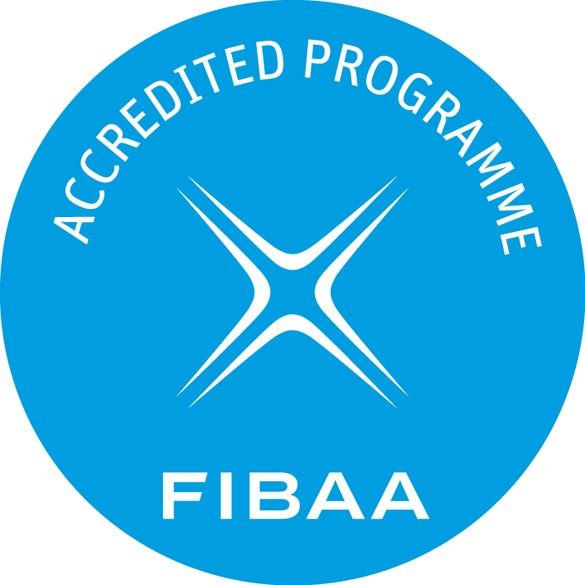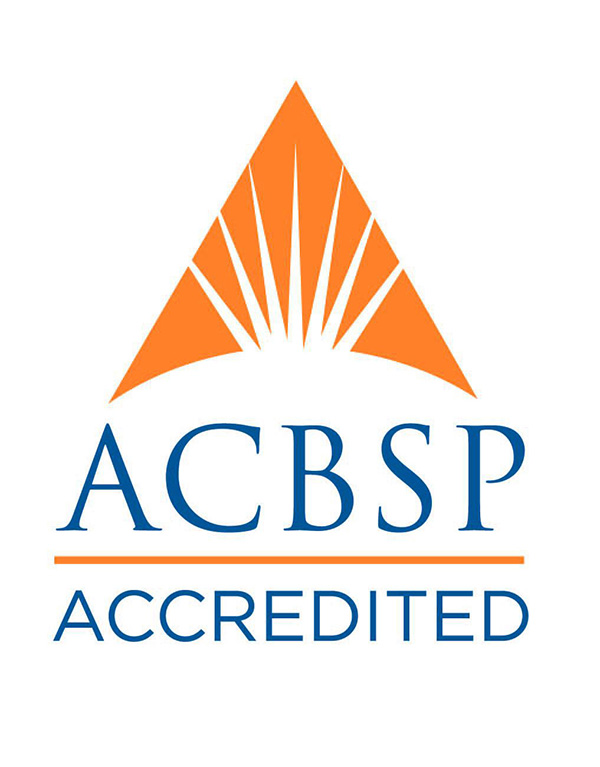Why Accreditation?
Accreditation serves the following goals:
- Guarantee quality of teaching and study for the development of the Business School
- Increase mobility of students
- Increase compatibility of degrees internationally
- Facilitate orientation within the new Bachelor and Master Studies for students, employers and universities
- Increase transparency of the programs
The Danube Business School and its programs are tested and awarded.
FIBAA
 FIBAA (Foundation for International Business Administration Accreditation) is an international accreditation agency mainly active in Europe. It aids higher education institutions in the further development of their Bachelor-, Master- and PhD programmes. This is achieved through an intensive accreditation process involving the higher education institution. On the one hand this process aims at quality improvement, on the other it aims at the accreditation of the programme. This quality process comprises the consultation to quality management, the appraisal of the program concerning its structure and contents as well as the fulfillment of the requirements which are needed in order to bestow the FIBAA-quality seal.
FIBAA (Foundation for International Business Administration Accreditation) is an international accreditation agency mainly active in Europe. It aids higher education institutions in the further development of their Bachelor-, Master- and PhD programmes. This is achieved through an intensive accreditation process involving the higher education institution. On the one hand this process aims at quality improvement, on the other it aims at the accreditation of the programme. This quality process comprises the consultation to quality management, the appraisal of the program concerning its structure and contents as well as the fulfillment of the requirements which are needed in order to bestow the FIBAA-quality seal.
ACBSP
 Danube Business School has met the requirements of ACBSP Accreditation.
Danube Business School has met the requirements of ACBSP Accreditation.
The Accreditation Council for Business Schools and Programs is the leading specialized accreditation association for business education supporting, celebrating, and rewarding teaching excellence. The association embraces the virtues of teaching excellence and emphasizes to students that it is essential to learn how to learn.
ACBSP acknowledges the importance of scholarly research and inquiry and believes that such activities facilitate improved teaching. Institutions are strongly encouraged to pursue a reasonable mutually beneficial balance between teaching and research. And further, ACBSP encourages faculty involvement within the contemporary business world to enhance the quality of classroom instruction and to contribute to student learning.
Graduation & Retention Rate
|
|
GMBA | MBA | MSc |
| Graduation within 2 years | 76% | 41% | 63% |
| Graduation within 3 years | 19% | 49% | 34% |
| Retention rate *) | GMBA | MBA | MSc |
|
2021W |
94% | 96% | 97% |
| 2022W | 94% | 98% | 86% |
| 2023W | 100% | 100% | 94% |
*) Percentage of students who continue to enroll in the following semester
Satisfaction & Recommendation
| 2021 | 2022 | 2023 | ||
| Satisfaction rate *) | 1,6 | 1,7 | 1,5 | |
| Recommendation rate **) | 1,7 | 1,5 | 1,5 |
*) Graduates from Danube Business School were asked to give feedback how satisfied they were with their program in general.
The majority commented that they were very satisfied or satisfied with their program.
**) Graduates from Danube Business School were asked to give feedback how likely they would recommend the program they attended.
The majority commented that they were very likely or likely to recommend this program.
Advisory Board
Established in June 2016, the advisory board consults the Danube Business School on it strategic policies. This initiative aims at a fruitful exchange between research and practice to ensure that both current and future needs of business and society are identified and adequately addressed in our study programs.
The members of the advisory board are outstanding individuals representing business practice, research and teaching. With their expertise, skills, and networks they make sure that the DBS postgraduate learning portfolio continues to be state-of-the-art and caters to the latest demands and trends in research and practice.
Members |
|
|
Dr. Erich Prem Gründer und CEO |
Michael Pavlik CEO |
|
Prof. Dr. Markus Scholz Professor für Betriebswirtschaft, insb. |
Max Schachinger Vorsitzender Schachinger Logistik |
|
Prof. Dr. Lisa Gröhlich Gründerin ispira - Think Tank für |
|
Memberships
PRME Principles for Responsible Management Education

|
Since 2014 Danube Business School has been a member of the PRME initiative launched by the United Nations. As institutions of higher education involved in the development of current and future managers we declare our willingness to progress in the implementation, within our institution, of the following Principles, starting with those that are more relevant to our capacities and mission. We will report on progress to all our stakeholders and exchange effective practices related to these principles with other academic institutions: |
|
Principle 1 Principle 2 Principle 3 Principle 4 Principle 5 Principle 6 |
PRME DACH CHAPTER
In February 2014 Universities and educational establishments from Germany, Austria and Switzerland launched the PRME DACH Chapter. With its membership Danube Business School committed itself to be part of and further develop standards for responsible management education, in German-speaking countries as well as in Europe.
„The Principles for Responsible Management Education have the capacity to take the case for universal values and business into classrooms on every continent.”
UN Secretary-General Ban Ki-moon